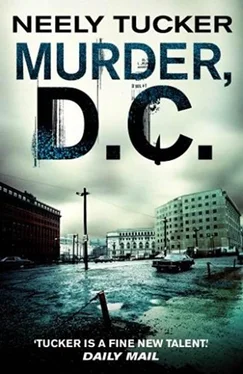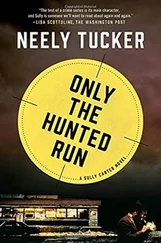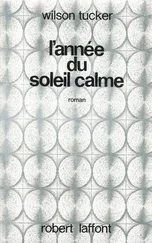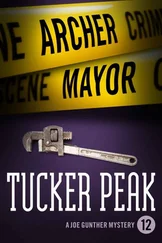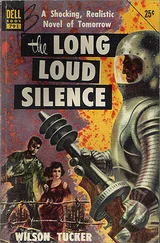Sully watched the water picking up into little whitecaps out in the channel, the wind coming up now, and he was reminding himself to write all of this down as soon as he left. He started writing this shit down in front of Weaver, he’d spook.
Weaver put a fist over his mouth and burped lightly. “Which is all to say, the Bend ain’t for amateurs, and little rich kid Billy Ellison? He was in way over his head down here. Goldfish swimming with the hammerheads.”
THREE HOURS TOdeadline by the time he got to Shellie Stevens’s office. This was cause for relief, so he let himself take a deep breath and roll his shoulders backward once, then twice, letting some of the tension go. Stevens wasn’t going to give him more than half an hour, it wasn’t even fifteen minutes back to the office… he’d have two hours. Plenty.
The office building-sleek, modern, stone and glass-fronted on Pennsylvania, America’s Main Street. It wasn’t the tallest building by any means, but it breathed the personality of its most fearsome inhabitant, which is to say it was polished, sophisticated, and inscrutable.
When Sully walked into the lobby, his hard-soled shoes clicking on the marble, he had to show his ID to the pair of guards in three-piece suits at the chest-high reception desk. The tile was white and spotless and being mopped by a guy in blue coveralls. The black-and-yellow-and-red abstract painting behind the desk, huge and sprawling, the only splash of color in the room, likely was worth more than his annual salary. The only sound was a stone and boulder fountain, in the corner, and even that rippled rather than splashed. He had the unconscious habit of summarizing places or people in one word, and now “muted” blipped across his brain. The entire effect was-
“Pardon me?” the guard sitting at the desk said, looking up at him, expectant. His partner looked at Sully, too.
“For what?” Sully said, coming out of his reverie.
“You just said something.”
“I did? What?”
The sitting guard flicked a glance at the standing one, both looking like they were wondering if this skinny guy with the scars was going to be trouble.
“I don’t know. That’s why I said, ‘Pardon me.’ Because I didn’t hear what you said.”
“Hunh,” Sully said, wondering if he’d been talking out loud again. “I don’t think I said anything. Is Mr. Stevens in today?”
They paused, both sizing him up, wondering if he was a nutter or just on his way there, and then the sitting guy said, “The secretary will be down to get you. Go ahead and sign in?”
He did and then wandered around the lobby, the only person there, wondering what other firms or agencies or bloodsucking leeches leased space in this sort of monument to soullessness. That biblical thing about cleanliness being next to godliness, he thought, standing by the boulders in the fountain, still feeling like somebody was going to come up and charge him for breathing the air, was that in federal Washington, cleanliness was next to power (if that was different than God in Washington).
Cleanliness of reputation or at least cleanliness from scandal that stuck to the sole of your wing tips like dog shit; cleanliness from tarnish in the eyes of voters or the Securities and Exchange Commission; cleanliness from allegations; cleanliness from flavor, from funk, from style, from hair over the collar, from skirts above the knee. The entire goal of existence in these quarters seemed to be living your life as an unscented sheet of white paper. It wasn’t enough to have money here-you had to have juice , you had to have influence on the bench and in the House and Senate and Oval Office, and to have that sort of juice and that sort of influence, you had to appear spotless, clean, scrubbed with the disinfectant of integrity and good judgment and decorum and the utter lack of any personality at all.
And if you were Shellie Stevens, the man in the penthouse floor of this place, you didn’t even appear as this. You were the ether, the air, someone so above the fray, so above the act of cleaning, so as to not appear at all. This combination of traits made Stevens one of the most intimidating names in the city, the lawyer who made things go away for the rich and the unclean.
Sully was supposed to be professionally free from bias, yeah, he knew that, except that he could not abide the very idea of Shellie Stevens, and he would have felt bad about this professional lapse, really, except for the fact that he was one hundred percent certain the feeling was mutual. Stevens’s contempt for the Fourth Estate was what passed for Washington legend.
The receptionist came to claim him then, swiping a card in the elevator to access the penthouse floor, and then, once there, swiping it to open a locked set of double doors. Once inside, there was light classical music in a cavern of wood-paneled walls and oil-on-canvas paintings of Georgetown from the water and the Capitol in the eyes of an impressionist, hues of granite and limestone and fading light. The floors were polished hardwood, draped with Persian rugs that bled money. There were no windows in this space, but when you stepped into Stevens’s inner sanctum, a corner suite commanding views to the east and south, the windows ran from the floor to the ceiling, a dozen feet above. Watery winter light, as thin as weak tea, filtered across the room.
In the middle rear of this space, backlit, Shellie Stevens sat behind his oaken desk, elbows on the table, his interlocked fingers beneath his chin, eyes flickering only slightly to take in Sully’s appearance. He did not get up.
“Mr. Carter,” he said from the slight shadow in which he sat. The receptionist, almost invisible, walked gently backward, pulling the doors closed behind her on the way out.
“Mr. Stevens,” Sully said, making his way across the carpeted room, sitting down in one of the heavy leather chairs across the desk. There was no question of a handshake. The man wouldn’t have taken his hand if he gave it to him gift wrapped.
“How may I help?” Gravel-voiced, impatient, the words more a demand than a query.
Stevens was thin, approaching sixty, short silver hair slicked straight back, wearing his suit jacket at the desk, the white shirt and light blue tie setting off his eyes of the same color. He assessed Sully like he was a fish flopping on a pier.
“I’m at work,” Sully began, “on a story about-”
“I know that.”
“-and I-well, then you’d know how you could help. Delores Ellison said I should talk to you.” He reached into his backpack for what he knew would be a fool’s errand. “Let me get my notebook and recorder, so I can keep-”
“This is not an interview. No notes, no recording.” Stevens still had not moved.
“Fine,” Sully said, pulling himself back up into the chair. “An off-the-record chat. Delores Ellison said I should talk to you about her son, Billy. Why would she do that?”
Stevens blinked, finally, then looked at him blankly, as if he were slow of mind. He inhaled and let it out slowly. “Why would Delores,” he said, “ask you to talk to me.” He considered. “Because I told her to. Because this is a private matter. Because there is very little that needs to be in the public sphere.”
“I see. And what is it that should be public? That I might print?” He was trying to keep his tone neutral, but it was already wobbling.
“That you might print?” Another pause. The shoulders still had not moved, nor had the elbows on the desk, nor the hands clasped at the chin. “I have a statement prepared. It will be given to you on the way out. A list of Billy’s notable achievements, his schooling, his social memberships.”
“I look forward to seeing it. But you’re describing an obituary. I’m writing a crime story.”
Читать дальше
